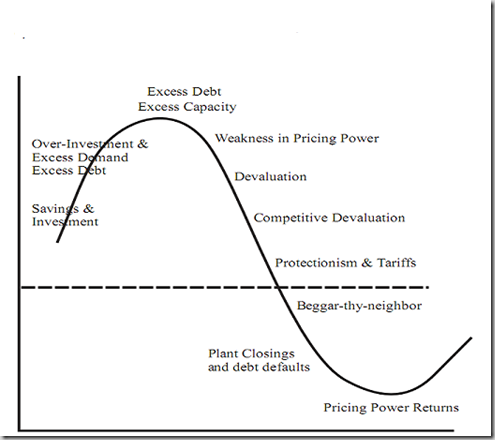Re: You're not going to believe this: Inflation/deflation debate still alive?
Jim, I've read all these latest pronouncements by Barclays, RBS, BIS etc. and have been trying to figure out just what it all means. I understand that BIS came out a few months before the Sub Prime crisis in 2007 with warnings and a recommendation to buy the Yen in a carry trade unwind. They in effect announced the August crisis in advance.
It appears to be quite a pissing contest.. apparently Europe has been stuck with a trillion in bad paper passed off by the US banking con artists. The article said they'd already written off 800 billion $.
They also are not willing to follow the US down a hyper inflationary path and in no uncertain terms have broadcast that they will do the right thing and raise rates to arrest the inflationary spiral that we are now in. They know they have the US in between a rock and a hard place and are going to squeeze us hard.
I think this is a huge story and probably THEE "great game" to follow right now. It's Robert Zoellick, Paul Wolfowitz, and Ben Bernanke (The IMF, the World Bank, and the FED) against the EURO and the BIS.
Originally posted by Jim Nickerson
View Post
It appears to be quite a pissing contest.. apparently Europe has been stuck with a trillion in bad paper passed off by the US banking con artists. The article said they'd already written off 800 billion $.
They also are not willing to follow the US down a hyper inflationary path and in no uncertain terms have broadcast that they will do the right thing and raise rates to arrest the inflationary spiral that we are now in. They know they have the US in between a rock and a hard place and are going to squeeze us hard.
I think this is a huge story and probably THEE "great game" to follow right now. It's Robert Zoellick, Paul Wolfowitz, and Ben Bernanke (The IMF, the World Bank, and the FED) against the EURO and the BIS.

 . You're right, just in comparison with the corrupt FED they are.
. You're right, just in comparison with the corrupt FED they are.
Comment